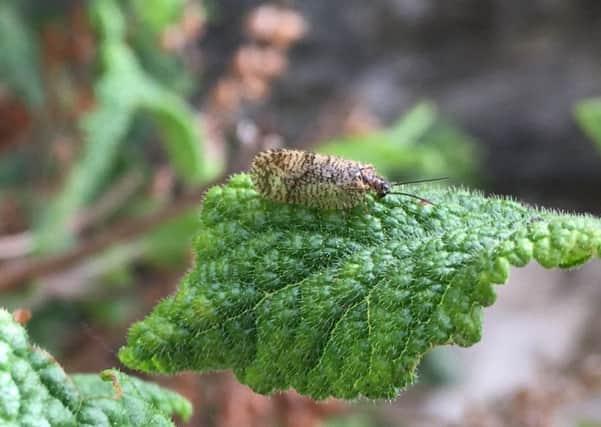Insects are fleeing uphill as Scotland’s streams get warmer – Suzanne Burgess


There are a number of factors driving this crisis: habitat loss, pollution from pesticides and fertilisers, introduced species and, of course, climate change, which is one of the major long-term threats to global biodiversity.
Closer to home, this week’s fire at Holyrood Park could have devastating impacts on one of Scotland’s rarest bugs, the bordered brown lacewing, which is only found at two locations in Scotland. It is currently unknown what started this fire but with the recent dry and warm weather this would certainly have helped this fire spread.
Advertisement
Hide AdAdvertisement
Hide AdIt is not only the lacewing that could suffer from this fire but other insects that may have been hibernating waiting to emerge this spring. With Holyrood Park also seeing fires during 2018’s heatwave, are we due for more such blazes in the heart of Edinburgh and elsewhere across Scotland?
What impact could this have for the wildlife that call Scotland home and for us? And why should we be concerned about the fate of our insects?
Insects provide us with a number of services – they pollinate our crops, control pest species in our fields, create new and healthy soil, recycle nutrients and many are food for us and other animals. These services are free and are worth millions of pounds to our economy.
With the worrying trends of drier summers and wetter winters what else is expected to occur that could affect our bugs?
In Scotland, many of our cold-loving species will be forced to retreat northwards and uphill until they have nowhere else to go. We are already seeing evidence of this.
Recent surveys have shown that the upland summer mayfly, a montane species restricted to cold-water streams, has disappeared from lower altitudes and is being pushed further and further upstream as water temperatures rise.
Buglife has a number of projects that are helping support our bugs, from those that live in deadwood to pollinators and freshwater species. Our aim is to stop extinctions and to achieve sustainable populations of invertebrates across the UK. One such initiative, the B-Lines, is connecting habitat for pollinators that will allow them to move across our countryside.
What can people do locally to help our bugs? In our gardens and allotments, here are some easy tips:
Advertisement
Hide AdAdvertisement
Hide AdDon’t use peat-based composts. Peat is extracted from peat bogs that are vital habitats for a range of specialist species of plants and animals and are an important store of carbon. There are alternatives that can be used.
Put away the spray and don’t use pesticides. Attract beneficial bugs such as hoverflies and lacewings (whose larvae feed on aphids and other insects) to your garden by planting some native wildflowers. These wildflowers will also provide a food source for pollinating bumblebees, hoverflies and butterflies.
Be less tidy in your garden. Clearing up dead leaves removes food for many of our bugs. Create a log pile that will attract ground beetles that feed on slugs.
Watch for stowaways such as flatworms when buying from garden centres that may become the next invasive species. Buy home-grown plants to reduce risk. And become a member of Buglife to support our work and save our bugs.
We can all play our part to help our environment, it can start at home. If we all made one or two changes, it would make a huge difference!
Suzanne Burgess is Buglife Scotland manager
